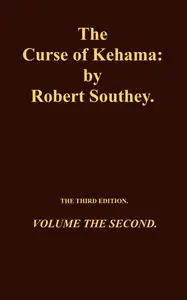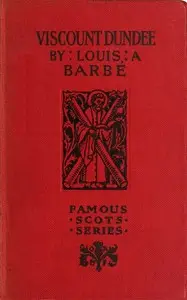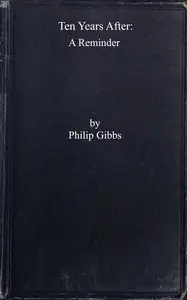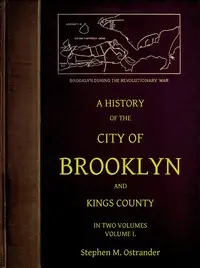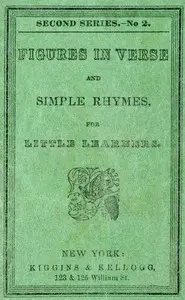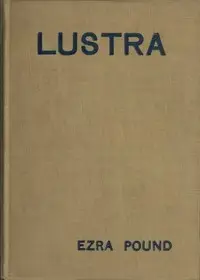"Roderick, the Last of the Goths: A Tragic Poem" by Robert Southey is an epic tragedy written in the early 19th century. The poem unfolds the story of Roderick, the last king of the Visigoths, during the tumultuous period leading to the Moorish invasion of Spain. Central to the narrative are themes of betrayal, loss, and the quest for redemption, as Roderick grapples with the consequences of his past actions and the challenges of reclaiming his kingdom. At the start of the poem, we are introduced to Roderick as he grapples with the fallout from the betrayal that led to his kingdom's downfall, largely stemming from Count Julian's personal vendetta. Roderick's internal conflict is palpable as he reflects on his sins and the devastation wrought on his land. The narrative sets the tone for a profound exploration of remorse illustrated through Roderick's interactions with a monk named Romano, who serves as a spiritual guide. The themes of penitence and the yearning for redemption weave through the opening chapters, foreshadowing Roderick's emotional and moral journey as he faces external threats while seeking a path to forgiveness and restoration. (This is an automatically generated summary.)
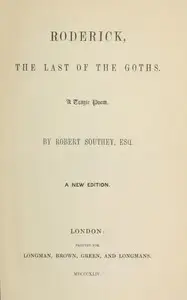
Roderick, the last of the Goths : $b A tragic poem
By Robert Southey
"Roderick, the Last of the Goths: A Tragic Poem" by Robert Southey is an epic tragedy written in the early 19th century. The poem unfolds the story of...
Free Download
Overview
About the Author
Robert Southey was an English poet of the Romantic school, and Poet Laureate from 1813 until his death. Like the other Lake Poets, William Wordsworth and Samuel Taylor Coleridge, Southey began as a radical but became steadily more conservative as he gained respect for Britain and its institutions. Other romantics such as Byron accused him of siding with the establishment for money and status. He is remembered especially for the poem "After Blenheim" and the original version of "Goldilocks and the Three Bears".
Total Reviews
10.0k
Total reviews from Goodreads may change





